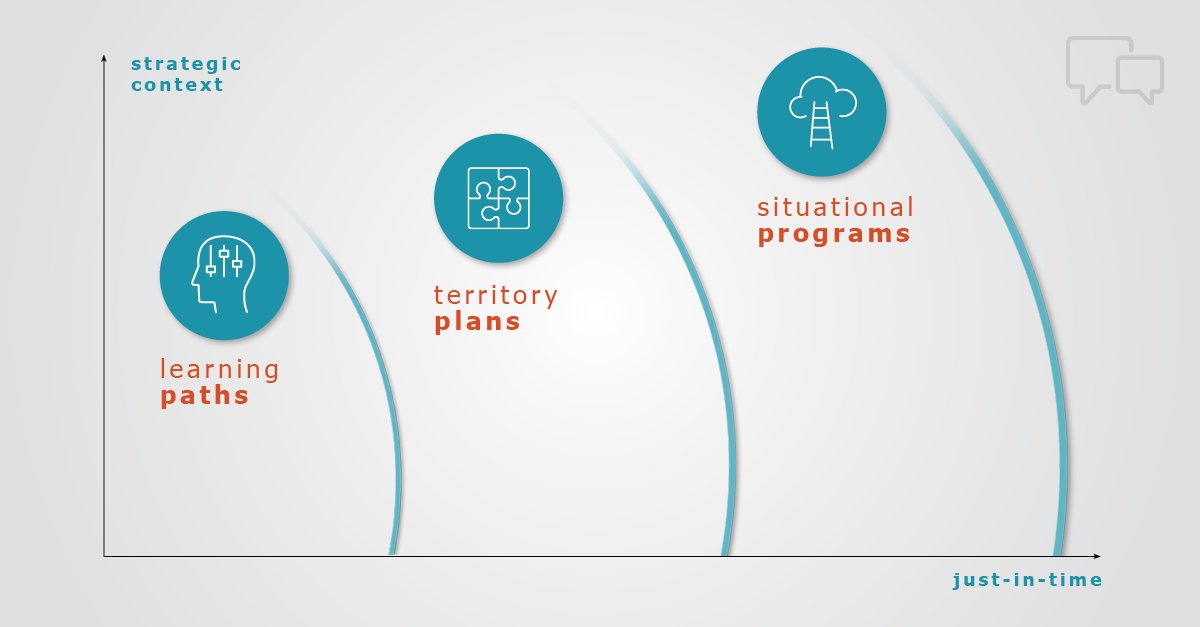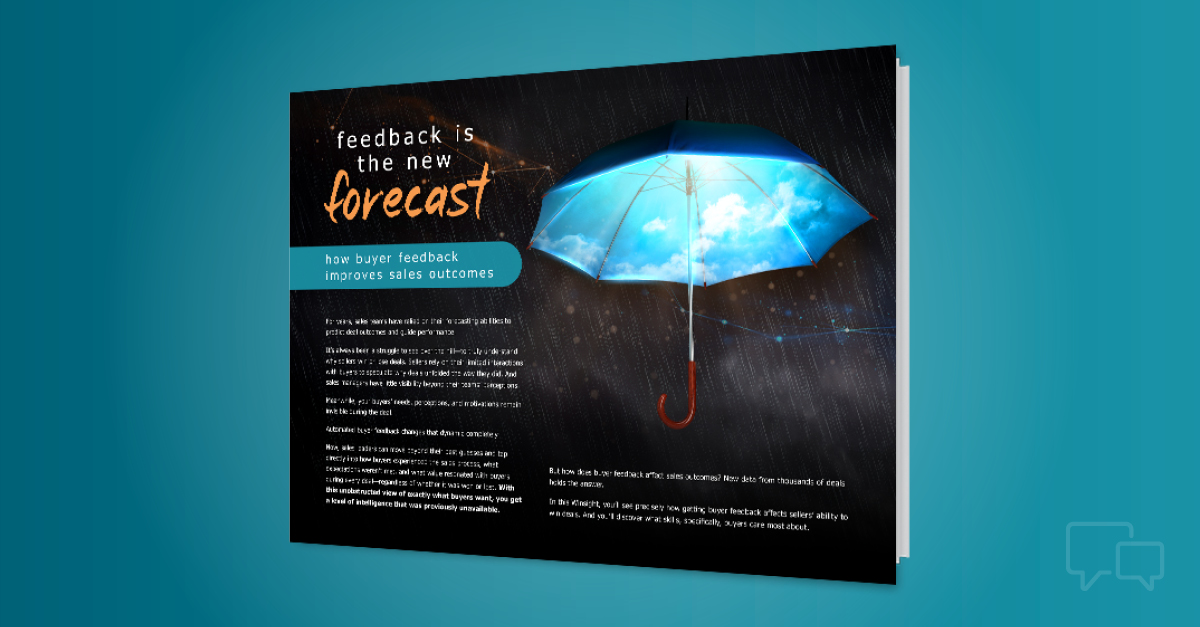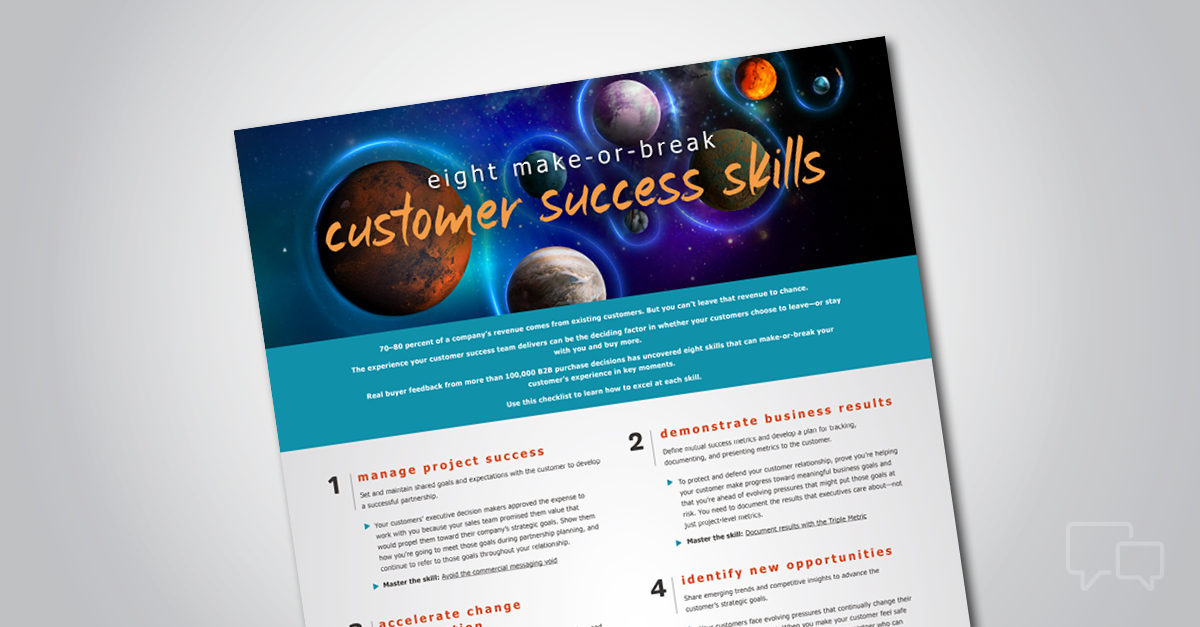
People are more willing to learn (and will learn best) when they’re in a deficit—a moment of need. This kind of learning is what I call “Deficit Learning.”
For example, do you remember the last time you had to change a flat tire? Chances are, it’s been many years. As a result, when it happens, you’ll probably need to refresh your knowledge by dusting off the old owner’s manual or looking it up online.
And that’s okay. Why? Because you learn best when you’re in a deficit. You learn best when you need to learn something—not when knowing something might help you, but when it absolutely will.
Salespeople are no exception. Your sales reps need the Deficit Learning approach when they have a skills gap or an acute performance need they can’t afford to ignore.
Enabling the Deficit Learner
Training and enablement that’s inflexible and event-based won’t be of much help when you need to respond to an urgent situation right away. Examples of those situations might include:
- A troubled sales territory that’s up against a newly aggressive competitor
- An emergent threat to a dominant product or service that makes defending, retaining, and protecting your position paramount
- A new product or go-to-market strategy launch
- A major economic event, like a global pandemic
Research shows these different situations call for dramatically different messaging, content, and skills training. One-size-fits-all messaging won’t cut it today. After all, it’s the buying situation and circumstances your buyers and their companies face—not their role or responsibility—that dictates their buying decisions. And that’s why a planned calendar of “just-in-case” training, which reps may or may not need, will have limited impact.
What they really need is Situational Enablement—just-in-time training and sales enablement that’s flexible, responsive, and tailored to the key buying situations your prospects and customers are up against.
The technology to make just-in-time, Situational Enablement a reality has been ready for a while. It’s the messaging, content, and skills—and the research to validate them—that have been lagging… until now.
Making Deficit Learning a Reality
In urgent, back-against-the-wall moments, you have no option but to learn, adapt, and either get yourself out of a tight spot or maximize an emergent opportunity. That’s why Situational Enablement is best suited for increased adoption and impact.
Salespeople face varying degrees of deficit every day. It’s a KPI that indicates a deficiency somewhere in the sales process. Or it’s the company asking them to learn a new product or skill. Or it’s a major market change, like a global pandemic, that requires them to pivot their dialogue and approach instantly with customers.
Each of the three waves of sales enablement (discussed in a previous article) solves a greater and greater degree of deficit, while the immediacy and urgency of the deficit increase with each wave.

At the highest level of strategic executive altitude and key initiatives, sellers face more urgent deficits, which means they need to learn and execute quickly. This naturally increases their motivation to seek out learning proactively.
The more acute and pressure-filled the deficit is, the more ready, willing, and able your reps are to invest energy into learning new skills.
In this blog series, I’m giving you more details on what it looks like to execute Situational Sales Enablement at your company.
Get our e-book about Just-in-Time Situational Enablement to learn more about this new model for training and enabling your team.
Read the other articles in the series:
- Winning the Moment with Just-In-Time Situational Sales Enablement
- The Three Waves of Sales Enablement
- Three Examples of Situational Enablement in Action
Next up: The Necessity of Fluency Coaching





